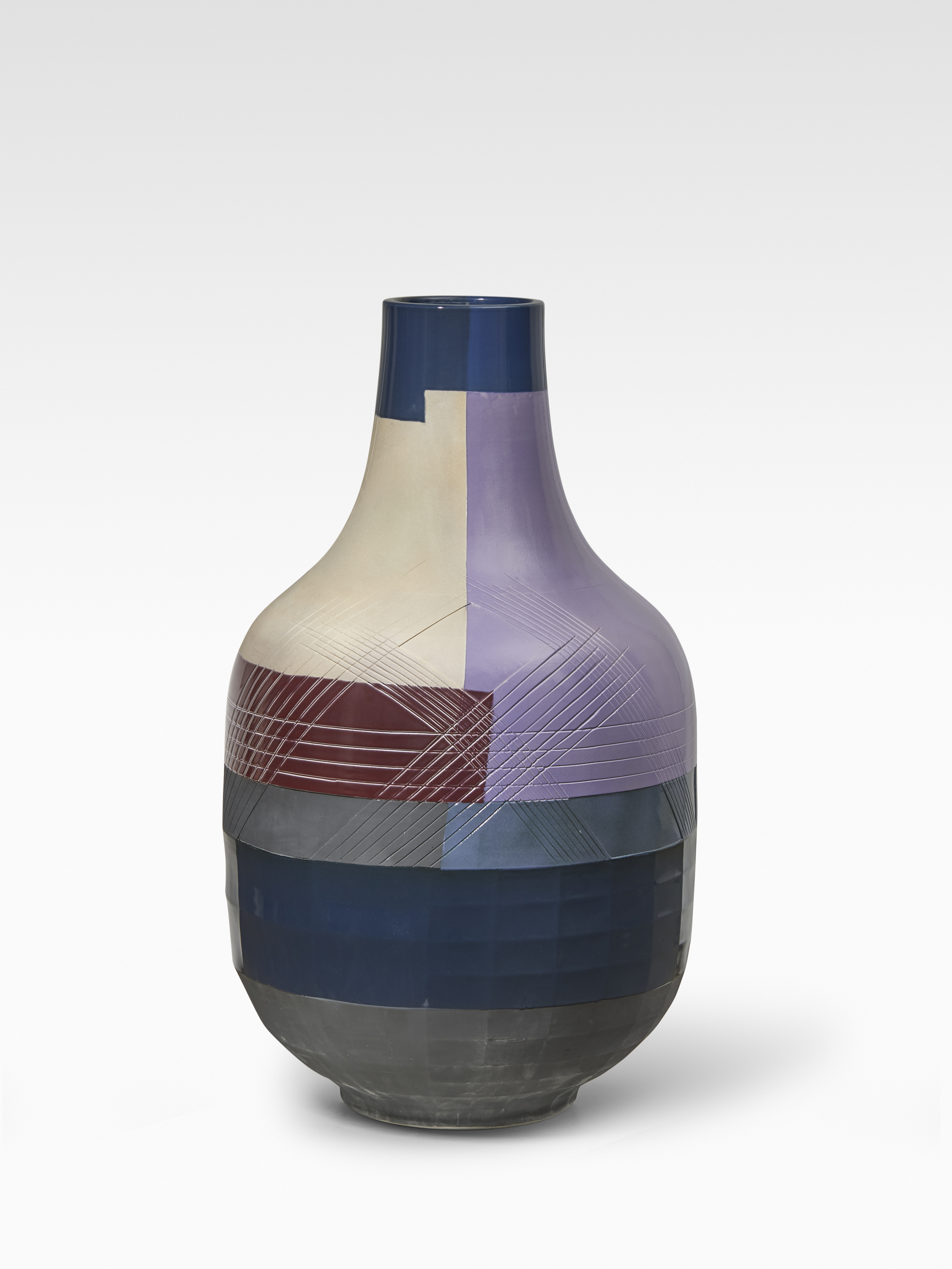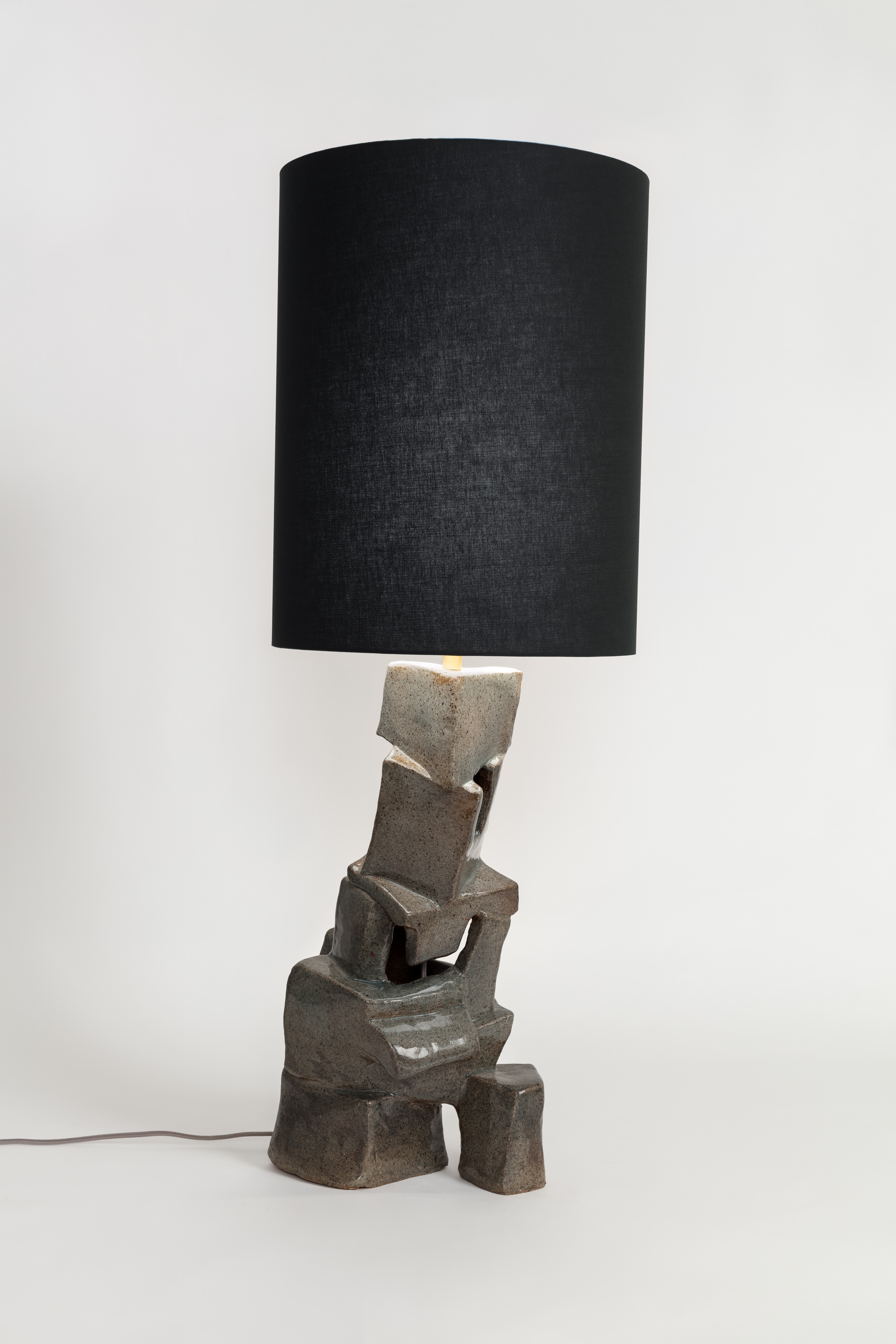Through a Glass, Darkly
The The Japanese word mitate (見立), combining the characters for “show” and “stand,” has no exact translation in English. It suggests an act of representation, reflection, or reference that opens up a familiar subject to new insight. The Dutch designer Wieki Somers has reached across cultures for this word, using as the title for a series of seven lamps that draw obliquely from Japanese design history. (The one seen here, for example, is partly inspired by samurai battle standards.) At a time when there is considerable — and justified — sensitivity around issues of appropriation, Somers’ project is a paradigm of thoughtful cross-cultural influence. She not only pays due respect to the tradition she engages, but also reflects on her own role in that process; the lamps’ purposefully disjointed forms capture the distortions that inevitably occur in the process of cultural transmission.
This sense of seeing something only imperfectly, as if it were refracted through a glass, darkly, can also be seen in Hella Jongerius’ bottle, which is made of porcelain but based on a series of experiments in folded paper. It is the result of material, rather than linguistic, translation, but just as elusive as Somers’ lamp. Its blocks of color in saturnine shades seem to slide across the surface; they seem caught in transit.
Carmen D’Apollonio’s poetically titled Lean on Me lamp also conveys arrested motion, its tumble of forms pitching forward, yet somehow retaining their stability. The work’s title offers an intentionally obscure narrative, which may also be viewed in terms of mitate — an open invitation to equally open interpretation.
DNA is a collaborative essay project, intertwining three gallery programs into a single, generative presentation.





